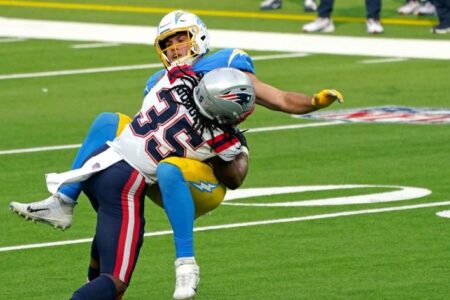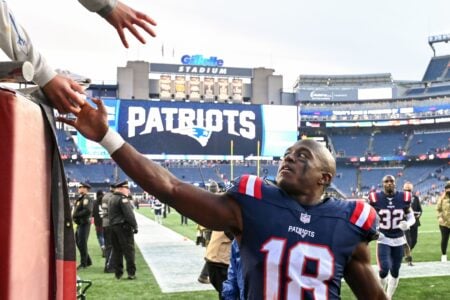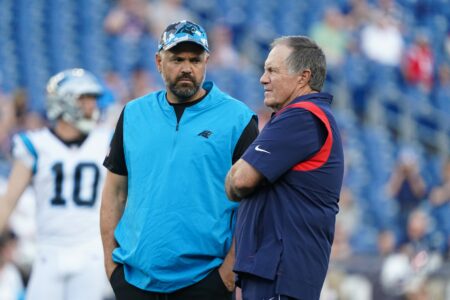eom
In the Starting Line-Up
- Joined
- Nov 13, 2007
- Messages
- 4,064
- Reaction score
- 1,487
Registered Members experience this forum ad and noise-free.
CLICK HERE to Register for a free account and login for a smoother ad-free experience. It's easy, and only takes a few moments.somewhere in this morass I think I read something about carolina being able to sign pep to a regualr longer term deal, and if they traded him that same day the new team would pick up the signing bonus (assuming there was one).
is this true?
otherwise, carolina's on the hook for that, right?
USATODAY.com
USATODAY.com
USATODAY.com
I have never heard of a franchise player who was traded agreeing to a long-term deal with his old team first.
The above links are just examples of how a trade of a franchise player has happened in the past.
Franchise player signs tender. Franchise is traded to new team. Franchise player signs long-term deal with new team.
I have never heard of a franchise player who was traded agreeing to a long-term deal with his old team first.
I have never heard of a franchise player who was traded agreeing to a long-term deal with his old team first.
The above links are just examples of how a trade of a franchise player has happened in the past.
Franchise player signs tender. Franchise is traded to new team. Franchise player signs long-term deal with new team.
Tebucky Jones signed is long-term deal with the Patriots with the condition he is traded to the Saints. A lot of them do that, you just don't hear about it because it is paperwork. So, it goes like this:
1) Player signs long-term deal with team, with signing bonus being conditional to being traded to new team
2) Player is traded to new team
3) New team acquires player with contract, pays bonus which kicked in as condition of trade
4) Old team has no salary cap hit, new team takes on contract like it was signed with them. However, they don't need enough cap room to take on entire franchise tender, they need enough cap room to absorb the new contract signed by the player.
That is how they manage to trade a franchise player without the new team needing enough cap room to absorb the full tender.
The problem is the old team would still be punished, because they would lose the franchise tag for the length of the new deal the traded player signed. That is where the "same day" thing kicks in. If you sign a franchise player to a long-term deal and trade him on the same day, you don't lose the tag for the length of the contract. You get it back the following year.
I'm pretty certain that is how franchise player trades are facilitated. If someone emails Andrew Brandt of the National Football Post or AdamJT13 they could probably clear it up.
Tebucky Jones signed is long-term deal with the Patriots with the condition he is traded to the Saints.
A lot of them do that, you just don't hear about it because it is paperwork.
The problem is the old team would still be punished, because they would lose the franchise tag for the length of the new deal the traded player signed. That is where the "same day" thing kicks in. If you sign a franchise player to a long-term deal and trade him on the same day, you don't lose the tag for the length of the contract. You get it back the following year.
If someone emails Andrew Brandt of the National Football Post or AdamJT13 they could probably clear it up.
we've got you on the ropes, now, miguel.
CBA said:*Side Letter 11/1/95: Sec. 1
(3) If a Player Contract provides for an increase in Salary upon the assignment of such contract to another NFL Team, such increase shall be included in the player’s Salary upon such assignment and be attributable to the Team paying the bonus.
CBA said:*Side Letter 1/18/94: Sec. 1
* If a club executes a multiyear agreement with a player designated as a Franchise Player and trades the player the same day to another NFL club, the assignor club will be deemed to have used its franchise designation for only the League Year in which the contract was executed.
This could have changed, I'm not sure.
It did change. I provided the link. If you read the link and still think that it did not change, there is really not much that I can do to further this discussion.
Here's the same day aspectVery well. However, it doesn't really address the point. I was merely showing that to clarify the "same day" aspect people were talking about.
1.)The Panthers do not have exclusive negotiating rights with Peppers.
2.) Peppers is already counting against the Panthers' cap.














